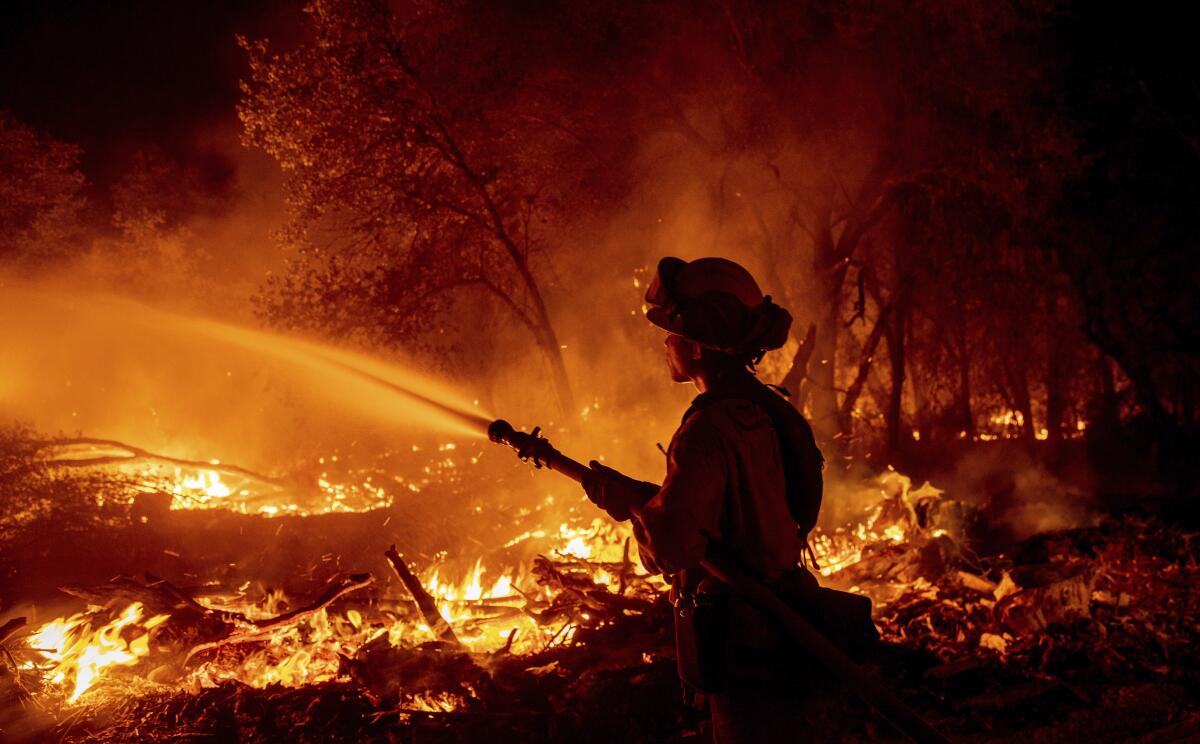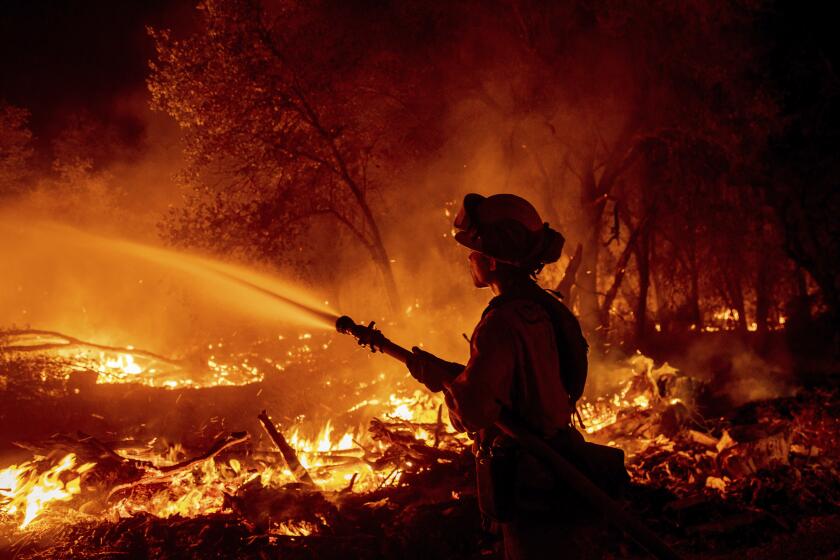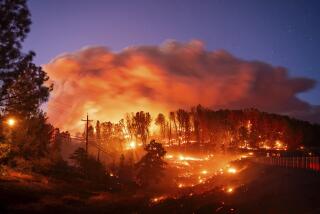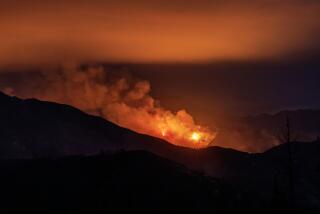Fawn fire arson suspect said she was boiling creek water to remove bear urine

A Palo Alto woman facing felony charges of arson in connection with a wildfire burning in Shasta County told authorities she was trying to boil bear urine out of creek water the day the fire started, according to a criminal complaint.
Alexandra Souverneva, 30, is accused of âwillfully, unlawfully, and maliciouslyâ setting fire to forest land in the Mountain Gate area near Redding on Wednesday, igniting the Fawn fire, which has destroyed 185 structures and forced the evacuation of thousands of residents.
She faces a felony arson charge with an enhanced charge of committing arson during a state of emergency. Together, the charges could result in up to nine years in prison, Shasta County Dist. Atty. Stephanie Bridgett said. She has pleaded not guilty.
Souverneva told Cal Fire officials that she was hiking to Canada when she became thirsty and found a puddle of water near a dry creek bed, according to court records. The water contained bear urine, Souverneva said, and after an unsuccessful attempt to filter it with a tea bag, she tried to start a fire to boil the water instead. But, she said, âit was too wet for the fire to start.â
She drank the water anyway and continued to walk uphill, she told authorities, until she saw smoke and âairplanes dropping pink stuffâ and then contacted the fire department.
Quarry workers reported seeing a woman matching Souvernevaâs description who was âacting irrationallyâ near where the fire began Wednesday afternoon. Court documents indicate the woman continued walking east into the vegetation, leaving behind two carbon dioxide cartridges and a battery along a dirt road.
Later that night, fire officials found Souverneva as they battled the growing blaze and assessed her for possible dehydration. At the time, she was carrying a functioning cigarette lighter and a âpink and white item containing a green leafy substance she admitted to smoking that day,â Cal Fire Officer Matt Alexander reported.
She also was carrying carbon dioxide cartridges that matched the ones found near the quarry, according to the criminal complaint.
Alexandra Souverneva, 30, of Palo Alto, was charged with arson in connection with the 8,500-acre fire.
In addition to arson charges, Souverneva, who was appointed a public defender, could face additional charges as the Fawn fire continues to burn. She remains in custody in lieu of $150,000 bail.
âWe are still waiting to get the final damage assessment to know what the extent of structural damage ⦠before we can decide whether we can file additional charges,â Bridgett said Tuesday. âI will say that additional charges are probably likely based on what I know so far.â
Fire officials think Souverneva may also be responsible for a vegetation fire in Shasta Lake City that ignited the previous evening. And Bridgett said she may be linked to other fires in both the county and elsewhere in California.
âIt is my experience that arsonists are responsible for multiple fires and will light multiple fires in a short timeframe,â Alexander wrote in the complaint.
Arson arrests have not been uncommon in California this year. Cal Fire Battalion Chief J.T. Zulliger said the Shasta-Trinity unit of Cal Fire has made 14 arson arrests this year, and there have been 103 such arrests statewide.
âWe are still in critical fire danger and ... we ask the public to be extremely careful and cautious having to do with any kind of outside activity that may spark a fire,â he said. âWe still have a long way to go until the rains come.â
The Fawn fire has now burned more than 8,570 acres, leading Gov. Gavin Newsom on Monday to declare a state of emergency in Shasta County.
The blaze grew steadily for several days, but by Sunday night, officials said its forward progress had been stopped. On Tuesday morning, it was 65% contained, according to the California Department of Forestry and Fire Protection.
Despite the containment, mandatory evacuation orders remain in place, and fire crews were preparing for potential heavy winds that could carry embers and start spot fires.
More to Read
Sign up for Essential California
The most important California stories and recommendations in your inbox every morning.
You may occasionally receive promotional content from the Los Angeles Times.












